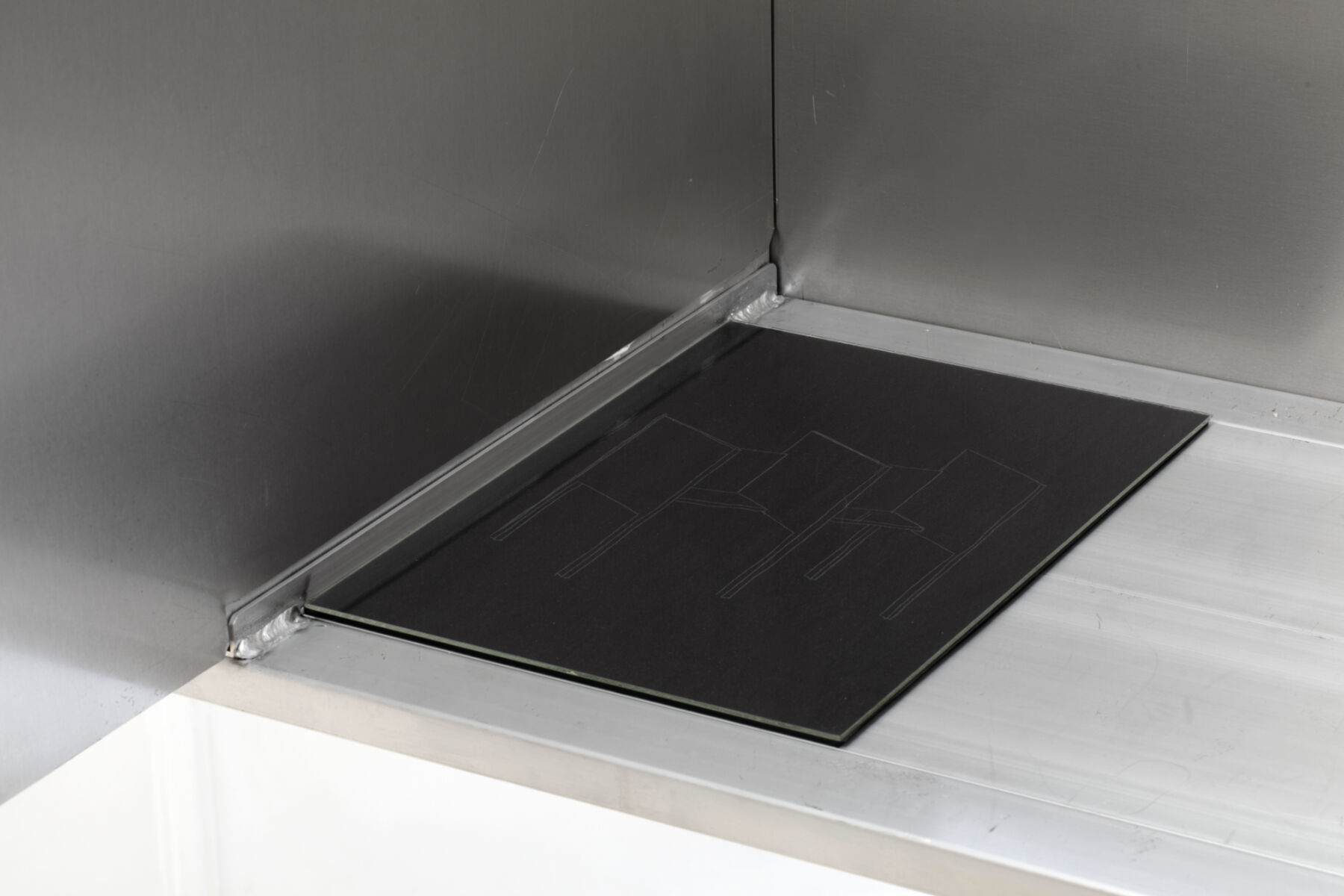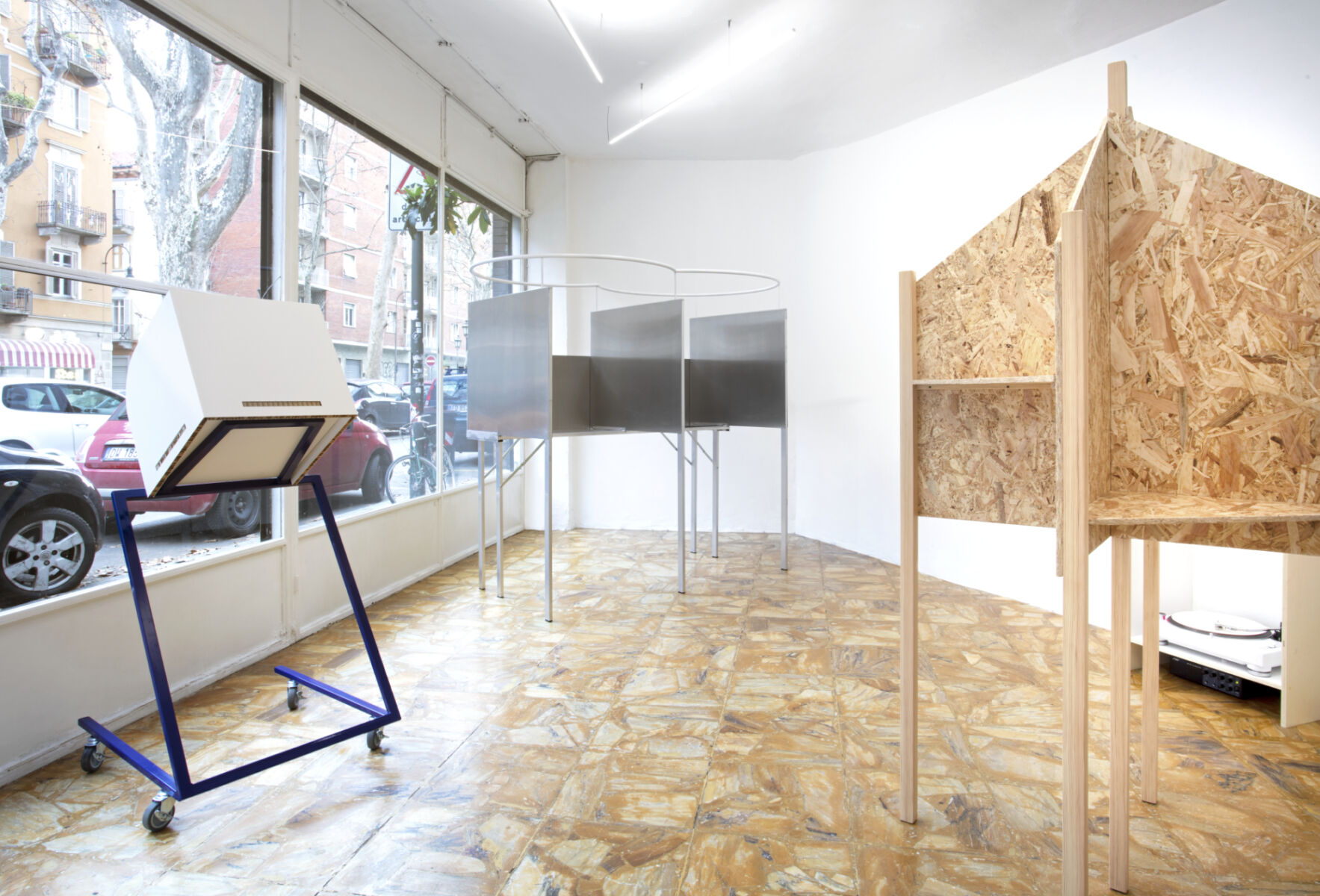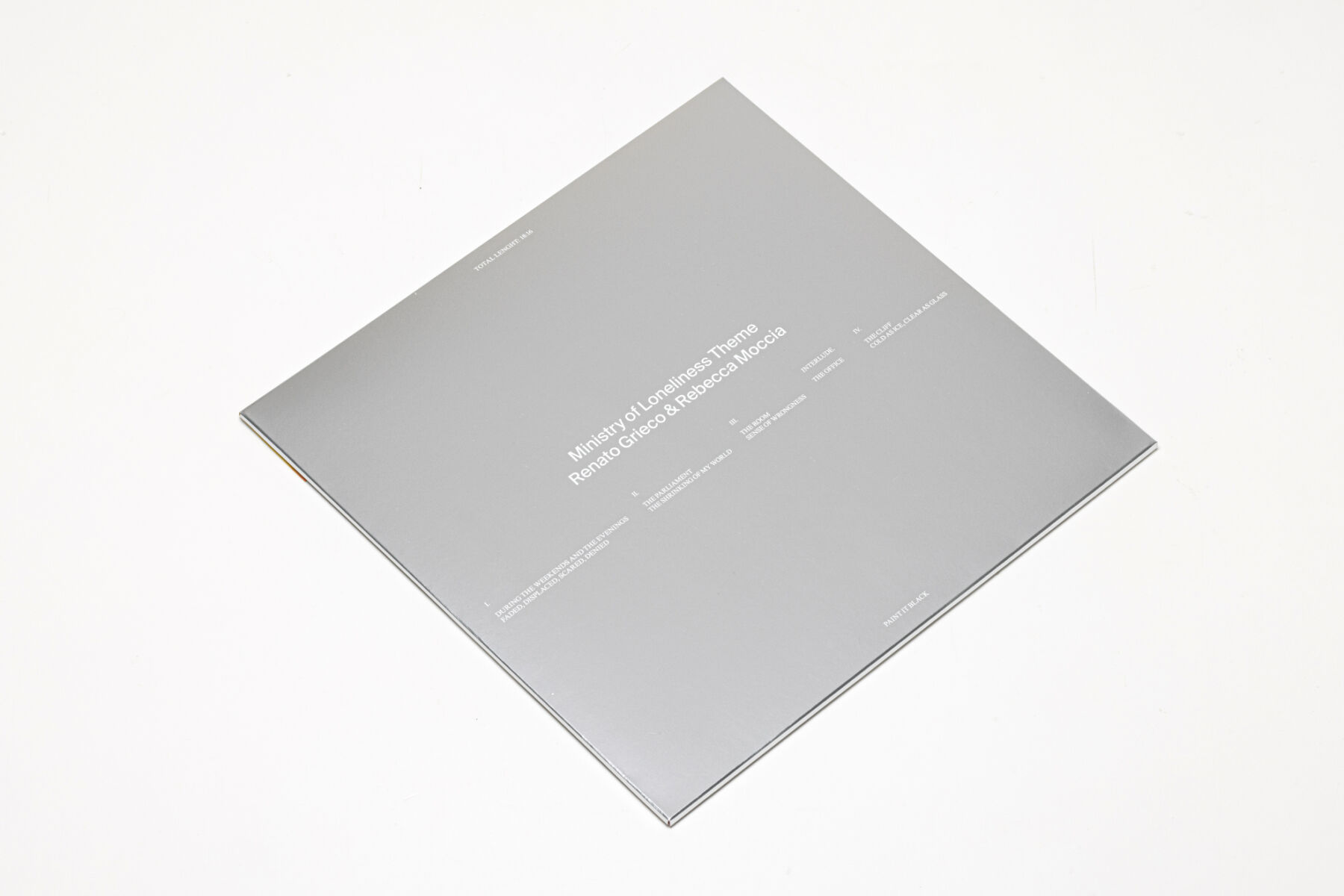Text by Elena Bray & Iacopo Prinetti

The research: a project on contemporary Loneliness
The pervasive Loneliness [1] and its phantasmal and material presence in the places that daily shape our political decisions and relationships is the basis of the research developed by Rebecca Moccia over the last three years [2]. Starting from the creation of the Ministries of Loneliness – dicasteries set up in the United Kingdom, Canada, and Japan initially to offer solutions to this condition that have become instruments to trace its economic and social cost – through the “lonely” architectures of the parliaments of these same countries, the artist has investigated the methodologies and purposes through which neoliberal bureaucratic devices shape Loneliness.
These include the Loneliness ScalE [3], the questionnaire most frequently used by governments worldwide to measure, quantify and analyse the magnitude and effects of the phenomenon, which Moccia collectivised through workshop moments, thus shattering the individualistic and reifying vision inherent in the forms.
Moccia’s analysis shows the systemic complexity of Loneliness by rereading it not as an historical phenomenon but as a recognisable experience born in the 19th century in parallel with the liberal states and the accelerating techno-scientific progress of modern life [4]. The so-called “Economies of Loneliness” have emerged from this advancement of the capitalist model – which proposes solutions as fragile as they are discouraging in a vicious circle that hopes the disease will also act as a remedy. These economies rose in the form of companies such as WeWork or Second Home, communities founded solely on an economic contract promising shared and social workspaces, and services such as Rent-a-Friend for renting “friends” by the hour from an extensive catalogue.
The Loners: the exhibition at Cripta747
If in previous exhibitions, the artist has focused on institutions with their alienating bureaucratic mechanisms, in The Loners, the Rebecca Moccia’s solo show at Cripta747, curated by Elena Bray e Iacopo Prinetti, she looks – in the year with the most elections in history – at our direct relationship with political institutions and their inability to listen, represent, involve, and care for their citizens and extended communities.
Moccia’s work narrates a more markedly political Loneliness that overwhelms contemporary existence, distant from governmental decision-making processes, reduced to a solitary vote in the voting booth – the only remaining form of political participation as atrophic as it is distant from collective and dialogic forms of mobilisation.
The exhibition took place in Cripta747’s spaces in via Catania 15, Turin, Italy. Here Moccia concretised this reflection, starting from a formal and archival work around electoral architectures. The artist collected, catalogued and analysed booths from different nations, each identifiable in its standardised architecture. From this taxonomy, which highlighted the uniform and constitutive approach of the liberal system of political representation, Moccia extrapolated various elements, which she transposed sculpturally into space. With their silent, monolithic presence, these architectures weaved a specific relationship with contemporary politics while narrating our distance from it.
This “state” narrative changes scale inside the booths where interventions inspired by Moccia’s archive tell stories of social, political and sentimental apathy in Japan, the UK, the US and Italy. Meanwhile, loudspeakers throughout the space broadcasted an audio work, The Ministry of Loneliness Theme, created in collaboration with sound artist Renato Grieco. This same composition has been the pivotal point of a listening session in Paint It Black, as part of the exhibition’s public program.
The sound, croaked through the speakers, further intensifies the perception of the atmosphere of liberal bureaucratic apparatuses and their inability to represent and accommodate issues related to feelings that reveal their structural alienation. The condemnation of this limited political vision invites the subversion of this state of inertia in favour of the (re)construction of community and political spaces to make everyday life a place where social demands can be voiced and truly participatory democratic processes can be operated.



The Ministery of Loneliness Theme: the vynil
The process behind the composition of Ministry of Loneliness Theme represented a research endeavour within the broader scope of Rebecca Moccia’s work itself. Even before the creation of the piece, field materials and bibliography were shared by the artist with the Neapolitan composer Renato Grieco. The primary goal was to develop a methodology that allowed the sonic element to be foundational in the installation rather than a merely cosmetic overlaying of different media. This was in respect of both artists’ practices.
Initially, the approach to sound was different: focusing more on the architectural aspect concerning the ministries’ facilities and the spaces that the images and text traverse, Grieco developed various artificial reverberations to place the field recordings or oral testimonies in virtual locations. This produced a form of alienation and emphasised the clinical aspect of the administration of feelings. After extensive planning in this direction, once work began on the actual horizontal drafting and visualizing renders of the installation space, the compositional intentions shifted.
Moccia and Grieco agreed that it would be more powerful to work in a musical sense rather than strictly sonic and to compose a suite. The materials were created using an orchestration of acoustic, electronic, and virtual instruments, recorded domestically on a multi-track reel-to-reel tape recorder. The intent was to convey the impression that the music itself was someone’s legacy—a discovery or an anonymous emotional inheritance. Deliberately, the recording equipment was used in a raw manner to retain a sense of amateurism in the production.
The coexistence of acoustic and electronic means, both analog and digital, prevents the music from being placed in a specific historical time, thus universalising the experience of loneliness. The tapes containing the final edits were degraded using various organic processes. Primarily burial. This is a practice already present in Grieco’s praxis, not necessarily highlighted in this project, but crucial for achieving the desired sonic result, similar to a tear in a fabric and the unpredictable corruption of some information. This degradation aims to add a layer of emotional depth, making the audio track feel like a relic of collective human experience. Finally, the tapes were cleaned, restored, and digitised, and the previously programmed artificial reverbs were applied.
Regarding the installation in the space, the music, field recordings, and voice-overs were spatially arranged within the different installation spaces where the project was exhibited. The music was initially set for four figure-of-eight speakers installed on the ceiling, two stereo pairs played through the video screens, and a bass amplifier enclosed in a small room, following the specific architectural features of Fondazione ICA Milano (Rebecca Moccia, Ministry of Loneliness, curated by Chiara Nuzzi at Fondazione ICA Milano, 2023). This spatial arrangement created an immersive environment that physically enveloped visitors, enhancing their emotional engagement with the theme. Sensation further amplified by the speakers on the ceiling, reminiscent of the wire systems used in public administration buildings.
Subsequently, the materials went through a mono-channel reduction (Rebecca Moccia, Ministries of Loneliness, colour, sound, 17’, 2023. Produced by Careof in the context of ArteVisione prize) and on that occasion, the sound was mixed in Dolby Surround for a cinematic projection, making the editing tighter and optimised for a frontal experience. The Ministry of Loneliness Theme album (Renato Grieco & Rebecca Moccia, Ministry of Loneliness Theme, Paint It Black, 2024) is a stereo mixdown of this final edit. Although the music was designed to inhabit the installation space and complete the spectrum of reflections and resonances evoked by confronting the theme of loneliness and its administration, the artists realised its communicative power also as a standalone object and agreed that it deserved a physical format.
By integrating these different elements, the audio track significantly deepens the experience and understanding of loneliness as observed within this artistic research project, highlighting its complex and multifaceted nature. The meticulous design and execution of the music and sound elements not only complemented the material, visual and textual components but also created an emotional resonance that allowed the recipients to viscerally engage with the themes of Ministry of Loneliness.





